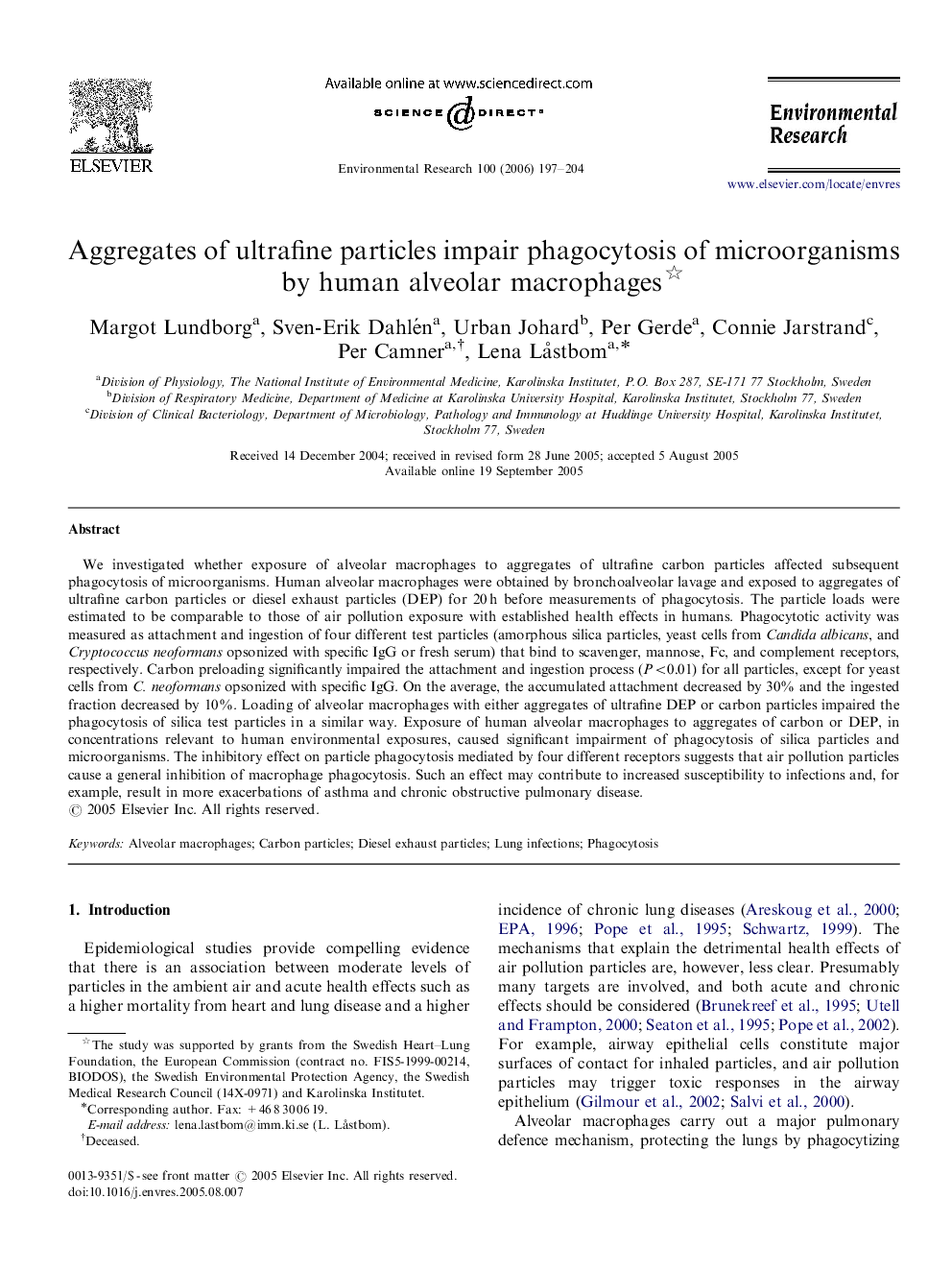| Article ID | Journal | Published Year | Pages | File Type |
|---|---|---|---|---|
| 4471043 | Environmental Research | 2006 | 8 Pages |
We investigated whether exposure of alveolar macrophages to aggregates of ultrafine carbon particles affected subsequent phagocytosis of microorganisms. Human alveolar macrophages were obtained by bronchoalveolar lavage and exposed to aggregates of ultrafine carbon particles or diesel exhaust particles (DEP) for 20 h before measurements of phagocytosis. The particle loads were estimated to be comparable to those of air pollution exposure with established health effects in humans. Phagocytotic activity was measured as attachment and ingestion of four different test particles (amorphous silica particles, yeast cells from Candida albicans, and Cryptococcus neoformans opsonized with specific IgG or fresh serum) that bind to scavenger, mannose, Fc, and complement receptors, respectively. Carbon preloading significantly impaired the attachment and ingestion process (P<0.01P<0.01) for all particles, except for yeast cells from C. neoformans opsonized with specific IgG. On the average, the accumulated attachment decreased by 30% and the ingested fraction decreased by 10%. Loading of alveolar macrophages with either aggregates of ultrafine DEP or carbon particles impaired the phagocytosis of silica test particles in a similar way. Exposure of human alveolar macrophages to aggregates of carbon or DEP, in concentrations relevant to human environmental exposures, caused significant impairment of phagocytosis of silica particles and microorganisms. The inhibitory effect on particle phagocytosis mediated by four different receptors suggests that air pollution particles cause a general inhibition of macrophage phagocytosis. Such an effect may contribute to increased susceptibility to infections and, for example, result in more exacerbations of asthma and chronic obstructive pulmonary disease.
